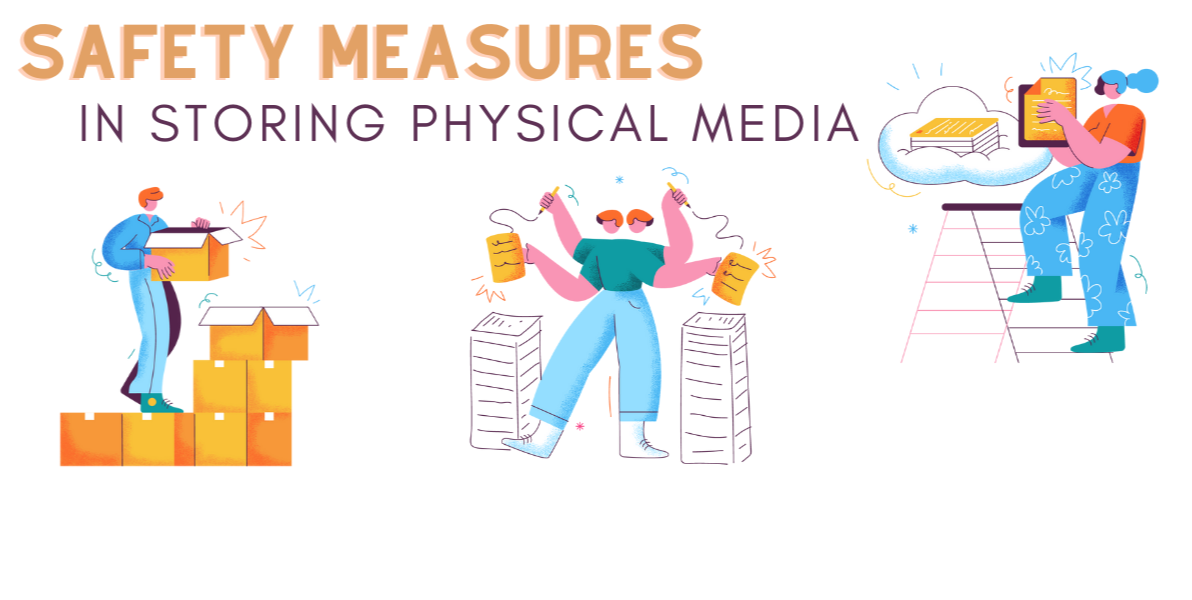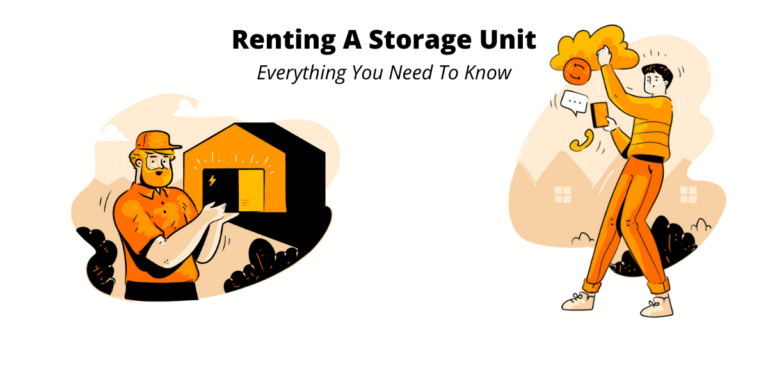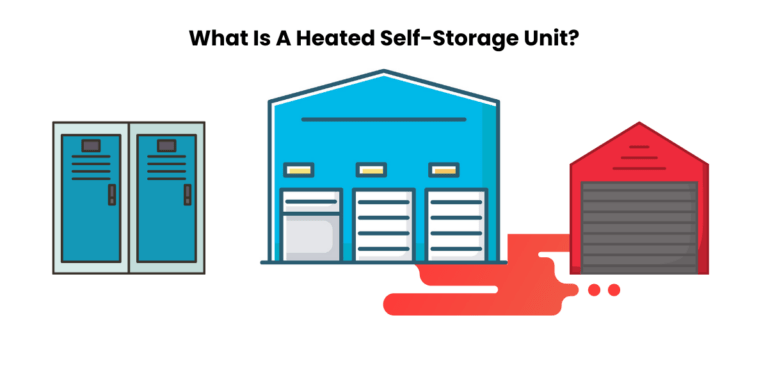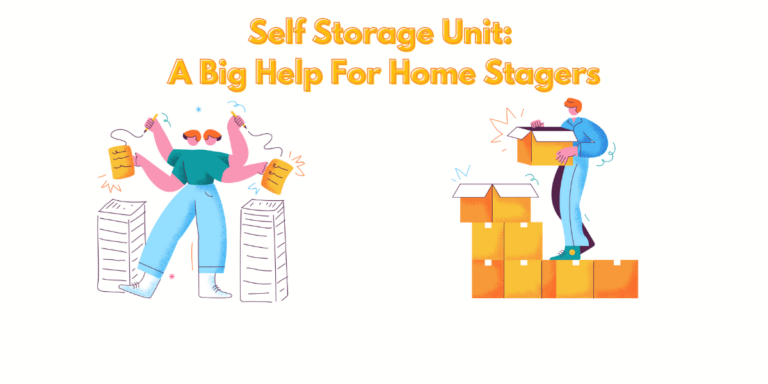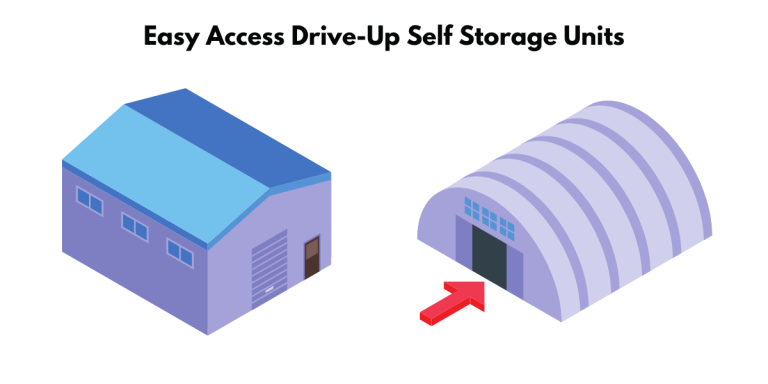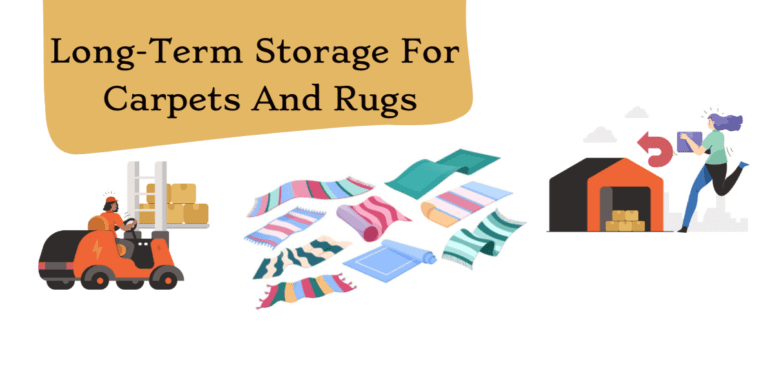Self-storage: How to Securely Store Physical Media
How to Securely Store Physical Media in Self-storage
Data storage is no longer restricted to media; cloud storage has become the most popular right now. However, it’s crucial to secure your data and ensure that you can still access it when needed.
There are a variety of ways you can secure your data:
- Encrypting files makes them unreadable without a password or key.
- Using remote server backups ensures that there won’t be any loss in case disaster strikes and your computer crashes, for example.
- Setting up a backup can ensure that you can access your data even if it’s been corrupted.
- Using encryption software ensures that no one without the password or key will be able to read your files, even if they have physical access to your computer.
There are some people who still want to keep a physical copy of their media. If you are one of them, it is important that you know how to properly store them for the long term to avoid irreversible damage. Keep reading to learn more. Physical tapes are not as secure as digital formats. Therefore, it is important to have a strategy for securing them in order to keep the content safe and accessible.
Listed below are the steps for storing your videotapes, hard drives, vinyl records, and other forms of media.
What is physical media
Physical media is any tangible object that has the potential to be read, written on, or otherwise processed by an automated device. This type of storage is susceptible to physical damages that are anything from dropping your hard drive off the desk, having one withstand fire, and then being put out with water which was then spilled on the hard drive by sprinklers. Data stored in this format cannot be recovered if physical damage has occurred because there will be a disruption in function.
Physical media is any storage medium that can be read by a computer. Batteries, tapes, and hard drives are all examples of media as well as video tapes, CDs, and DVDs. The most common form of physical media is a magnetic tape which consists of iron oxide particles on plastic-coated paper or foil with an adhesive backing to hold it in place.
The data stored on these tapes will not necessarily be lost if they’re removed from their original container because there are backups that exist elsewhere (usually in the company’s backup system).
Do we still need physical media?
Many people still print physical media such as paper documents, but this is increasing as many companies are moving away from paper. In order to maintain the quality of their content, they may need to use media.
In recent years, digital media rights have been a hot topic. Many people are wondering if we still need physical copies of movies and TV shows in the face of the many new platforms that provide instant access to content. Physical media can be a way for someone to ensure they will always be able to watch their favorite show or movie no matter what happens with internet outages or other issues on technology – but there is also plenty more involved with owning it digitally as well!

What is physical media damage?
The data on physical media can be lost or damaged if it is exposed to heat, water, fire, or drops. Media damage usually occurs when the hard drive overheats during use and damages the magnetic platters. The first step in preventing PMD is purchasing a case for your device that protects against falls, moisture, and other environmental factors which may cause thermal injury to data stored on storage devices such as hard drives.
Physical Media Damage (PMD) is the damage to data storage devices that occur due to normal usage or physical trauma. Data Corruption, clicking noises on data access, and system locking up are warning signs of device failure, which should prompt you to contact a professional for assistance.
Physical media damage can be caused by a variety of factors, including human error and system failure. The most common warning signs include clicks on data access as well as clicking noises from the drive itself. In addition to this, if the media is damaged in any way that affects its functionality or accessibility, then it may not be possible to recover image data even with platters that are intact.
Physical media damage can occur when a hard drive goes offline for any reason. When the data on the hard drives are not backed up or accessible, it’s often difficult to recover and restore files that were lost due to media damage.
To avoid further potential harm from damaged discs, you should turn off your computer right away after noticing an issue with one of them, so they don’t continue spinning without a power supply. It may also be helpful if you send your disc(s) in for professional data recovery.
Which type of storage is used for physical media?
A storage unit is typically used for storing physical media, such as the items that make up your personal library. Whether it’s books, movies, or Blu-ray discs, there are many reasons to keep these types of items in a safe and secure location. This includes the digital age, where well has taken care of physical media can last decades.
However, there are certain downsides to this method of storage; each piece of media is unique and takes up space on its own without being backed up online. In order to protect your physical media, you’ll need a secure storage unit that is both accessible and durable.
In contrast, media is not as easy to store and can easily be damaged. For these types of storage options, it’s important that the items are protected from factors like cracks and scratches. The first step would be to securely wrap or put them in a box before locking away their location with your safe deposit key code.
What is a climate-controlled storage unit?
Climate-controlled storage units are highly secure, clean, and safe repositories for the items you have stored with us. Our climate-controlled facilities are cleaned on a regular basis so that they stay in pristine condition.
It is important to have a climate-controlled storage unit if you live in an area that experiences extreme temperature changes. A climate-controlled storage unit protects your belongings from the damaging effects of heat, humidity, and cold.
A climate-controlled storage unit is a safe and secure place to store precious items. They come in different sizes, ranging from small units that can be placed under the bed or on top of other furniture to large ones for storing cars and motorcycles. Climate control wards off mildew, mold, and pests which could damage expensive items like electronics or clothing.
Climate-controlled storage units are an investment that can save you time and money. Climate control prevents the yellowing or degradation of leather, fabrics, and other items in the unit during their stay. Furthermore, climate-controlled units make visiting your storage unit more comfortable on hot days because they have air conditioning systems to maintain a cool temperature level inside the space year-round, no matter what outside temperatures may be like.
Climate-controlled storage is a layer of privacy and safety. Storage units with climate control are located inside a warehouse or other facility, like an airport.
How do you store physical media?
When storing physical media, it is important to consider the different ways in which you will store them. Storing tapes or drives requires a whole different strategy because they are prone to be damaged by humans or the elements. For example, when storing vinyl records on their sides, make sure that your shelving units are not so tall that they can be pushed over if someone were to walk past them.
Media should be stored in a cool, dry, dark location. It’s also important to label the items, so you know what is where and when it was recorded or created. The hard drives can be kept from touching each other because they are easily damaged if left on top of one another for too long without airflow around them.
The elements are not your friend
Media tapes and hard drives are susceptible to damage from the elements. To keep your media safe, you should store it in an airtight container with a lid that is firmly closed at all times.
The elements are your enemies. Although it seems like a great idea to store physical media in a safe and place tapes in the room, these methods provide little protection from fire or moisture damage. The best way to protect stored materials is by purchasing an appropriate storage unit with proper climate control technology.
The best way to protect stored materials is by purchasing an appropriate storage unit with proper climate control technology. Physical media tapes and hard drives are susceptible to damage from the elements, not just fire.
The elements are not your friend. It is important to protect yourself with a media vault, but remember that it can be expensive depending on the size of the space you want to secure.
The best way to store physical media is safe. Safes are not only inexpensive, but they also protect your valuables from natural disasters and theft. They’re easy to use as well – you just have to put the item in and close it!
Every element in the home should be stored at a temperature of 64 to 73 degrees Fahrenheit. The elements are not your friend because you never know when they will need to be used again!
It’s important to keep in mind that the elements are not your friend. Hot and humidity can cause electronics, such as computers, printers, monitors, and batteries, to malfunction or even stop functioning altogether during a power outage or natural disaster.
In order to have a safe home, it is important to know what types of rooms are prone to danger. Some spaces that should be avoided include basements and attics, as they may be more susceptible to hazardous situations.
Keep your tapes in their box
Storing tapes in their plastic cases is the best way to keep them secure. It keeps the tape from being damaged by moisture or humidity, preserves its integrity, and protects it from dust.
Hard drives should be stored in designated hard drive containers. Without enough space, the data that is on your computer might not be accessible or lost.
Be kind, rewind
If you are storing videotapes, make sure to rewind them periodically. This is a good idea for all physical media that you’re not watching or listening to.
“Be kind, rewind” is an infomercial that teaches people how to store their VHS tapes with the film in place. This prevents a sticky mess from happening when you take it out of the cartridge and over time.
This is a call to action for the reader. It urges them to be kind and go back in time before they do something that could cause harm or regret later on.
Label appropriately
It is important to label physical media. The tape should have a short description of what is on the tape and the data recorded.
It is important to label tapes properly so that they are easy for people to find, especially when there are multiple types of tape on hand.

Tips for storing vinyl records in a storage unit
Vinyl records are not the most durable of materials, so it’s important to protect your investment and musical memories. Here are some tips for storing vinyl in a storage unit:
Get a climate-controlled unit
The best thing you can do for your vinyl records is to store them in a climate-controlled unit. Records are sometimes damaged by excessive heat or cold, so it’s important to get one with temperature control.
The best way to ensure that vinyl records and their covers stay in good condition is by placing them in a climate-controlled unit. A temperature-controlled environment will help protect the records from damage caused by heat or moisture, which can do serious harm, such as warping labels and splitting jackets.
Vinyl records are one of the most popular items for climate-controlled units. Vinyl records stay cool enough and dry enough with a climate-controlled unit.
If you are looking for a climate-controlled unit, it is important to know the difference between types of units and models. The “cool” type keeps your plants dormant during winter, while the “grow” model allows them to grow more vigorously in the summer months. If there is not enough natural light or too much heat, then either buy one that can be controlled via an app or check out other options such as hydroponic systems.
Choose your containers carefully
Vinyl records are an investment, so it’s important to find the best way to protect your investments. Vinyl records should be stored in either cardboard or plastic bins depending on the size of the record and how much space is available in your storage unit.
To help you with this task, it is important to know what your business needs. For example, some businesses might need square corners on the boxes, while others would want rounded ones.
When choosing boxes, it is important to keep in mind the needs of your product. Boxes for fragile items should be sealed along seams so that dust does not get inside and cause damage.
Make sure your records are clean
Dust, oil, and grime can cause damage to vinyl records over time. To make sure your record collection stays in good condition (and you don’t need to spend hours cleaning it), make sure there is no dust or dirt on the surface of the record. Keep them clean by wiping them with a soft cloth.
If you are doing a quick clean of the carpet, use a brush instead of a cloth or t-shirt. The tool is designed specifically for record cleaning and will not scratch the vinyl.
When you are using microfiber to clean, make sure that you use a circular motion with the material. This will help avoid any scratches on your records!
Pack your records correctly
Pack your records in the correct way, and they will not warp. Pack them with their liners inside of a plastic bag, then put that into a dry cardboard box, and seal it shut.
Pack your records tightly enough to avoid slanting and leaning, but not too tight. When packing them, make sure there is enough room for the record sleeves, so they don’t get crushed or damaged.
The type of records you should be packing depends on the case. For example, if you are moving out of state or storing them for an extended period, it is recommended to pack your records in acid-free boxes and store them somewhere cool and dry.
Pack your records correctly to avoid damage or mold. Store them in a box with enough space for sliding in and out, but make sure the files are tightly packed, so they don’t move during transit.
Keep the stacks small
It is important to keep the stacks of records small because they are easily affected by humidity, temperature fluctuations, and dust. Records should be stored in containers that can hold up to 20 or 30 albums at a time.
When it comes to stacking boxes, a rule of thumb is not to stack more than four boxes on top of one another. This helps prevent the stacks from toppling over and potentially hurting someone or damaging something else in a storage room.
When stacking records, keep the bottom record in contact with the lowermost one.
Keep everything wrapped up
- Keep everything wrapped up for maximum protection.
- There are extra steps to take in cold climates, like moving the records into boxes or wrapping them with plastic wrap.
- For maximum security, keep your vinyl records in a storage unit.
Sometimes, vinyl records can be damaged by extreme cold. Keep your record wrapped up in a bag to avoid it from scratching. When you’re packing up your belongings, it’s important to wrap the boxes or bins in some blankets. This helps keep everything wrapped and prevents any breakages that could occur during transport.
Consider storing items in a unit without heat, such as blankets and clothing. It will keep them from getting damaged by moisture or molding.

How can you store books without damaging them?
Books are valuable to libraries, book stores, and individuals that want to preserve their books in good condition. When they are not being used or read, they should be stored securely for a long period of time. The best way to store books is by keeping them out of the light and away from any moisture. There are many ways you can do this with proper care for your library’s collection.
Inspect books for food or liquid damage
Books can be damaged by direct sunlight, extreme temperatures, and other things. Hardcover books have a binding system that can break down over time. Books should not store items in them that could warp the book — pens, hard bookmarks, and other objects. They can be stored in a variety of ways, such as on shelves or using sleeves to protect them from damage.
Carefully wrap each book
Books are easy to move and store with e-readers, but some prefer physical books for their smell. There are ways to store them without damaging them. Storage methods include wrapping each book in a plastic bag or placing it inside a box or drawer.
When storing a book, place it on its side with the spine facing up. If you’re going to store your books upright, make sure they are not too heavy and do so carefully as this can cause them to become wavy or warped.
Use a storage container
Books should be stored in a plastic storage bin or container. This way, the books are protected from moisture, dust, bugs, and vermin.
Store your books vertically
Books can be stored in a climate-controlled room without damaging them. The best way to store books is on the shelf in an open space, but if you are short on space, make sure to use vertical storage.
The best way to store books is vertical. The spine of the book should be at or below eye level, and you should avoid storing it on the edges or spines of other books. Be sure to protect your library by not placing too many heavy boxes in one spot, as this could tear through them like paper.
Utilize a climate-controlled storage unit for long term storage
Climate control storage units are a good option for the long-term storage of books. These climate-controlled facilities maintain a stable temperature and can store more sensitive items without damaging them.
Check on your books
There are many ways to store physical media without damaging it. You should check on your storage containers and if anything looks suspicious, address the issue immediately.
- 7 Common Packing and Moving Problems and How to Solve Them - March 19, 2022
- Self-storage: How to Securely Store Physical Media - November 5, 2021

